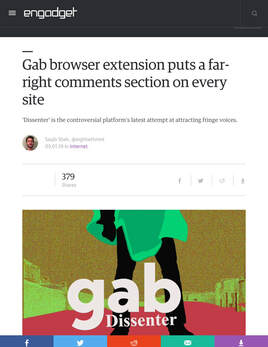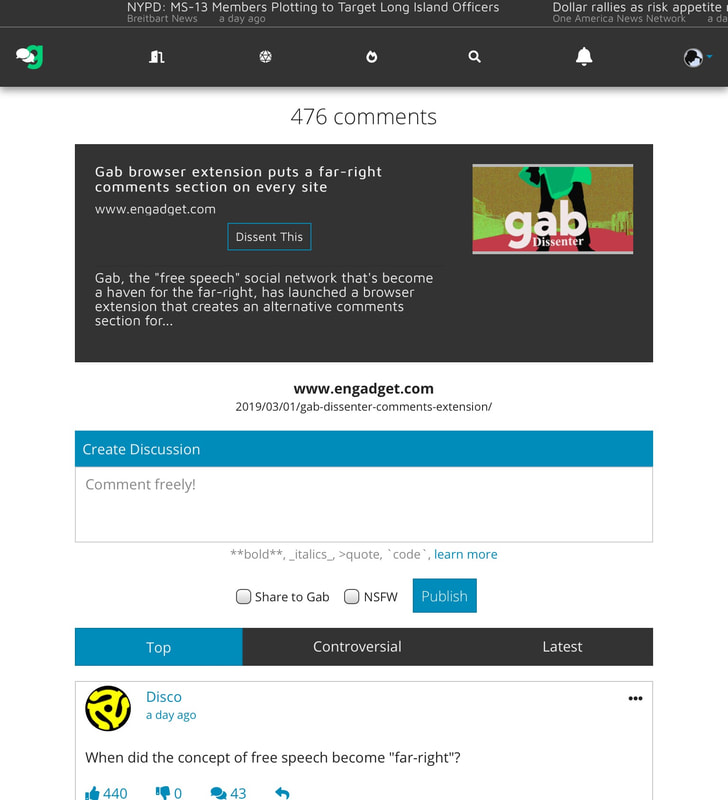|
White males commit more terrorism than any other group. Everybody knows this, right? If you try to debate terrorism on social media, the Smug Leftist will play his trump card: "ACKSHUALLY, statistics prove that WHITE MALES commit the most terrorism!" This may not seem right to you, despite the fact that there are indeed headlines proclaiming that "fact." But you may be at a loss for how to argue the point, since numbers don't lie, right? Well, I'm here to help. I spent several years of my life in government agencies' data analysis departments. I will tell you there is often political pressure on analysts to "prove" a certain point with data, and there are plenty of ways to manipulate or creatively interpret data to make it seem to point one way or another. Dishonest (or possibly dumb) journalists will happily tout a headline that a "study says..." something that they want to be true. Most people will simply absorb the headline, assume there is some truth to it, and move on. I'll try to give a quick summary of some of the common ways that numbers can lie: 1. GARBAGE IN, GARBAGE OUT - This is a common phrase in the world of statistical analysis. It means that if the data collection is no good, then the resulting data analysis will be no good. You must ask how the data was collected and by whom. Was it collected by trained, conscientious, and non-biased workers? Often the answer is no. It is wise to be skeptical of information collected by workers who have inconsistent training, a disinterest in data collection, or a motivation to skew data to secure agency funding or cover their own failures. Also, if you see the phrase "THERE IS NO EVIDENCE OF X" , you may want to ask whether there is no evidence because the data was never collected! Self-reported data is also notoriously unreliable. People can have highly inaccurate self-perceptions. They may make errors when responding to surveys, or they may choose to fudge or even outright lie in order to achieve the result they prefer or avoid embarrassment. Compared to carefully conducted scientific analysis, such information can be considered "garbage." 2. TOTAL NUMBER VS PER CAPITA. This is an especially useful one with regards to the "White people are the worst" arguments. Because Whites are a majority of the United States population, we are likely to have "more" of any given problem if you simply count the numbers. The "Whites are the worst" argument often falls apart when you look at the numbers as a percentage of the group population. This may seem obvious, but it is easy to slip past most casual readers of mainstream media, especially if it confirms what they wish to believe. 3. APPLES TO ORANGES. A few years ago some media ran reports that children raised by gay couples are happier than those raised by conventional families. This is an example of the "apples to oranges" deception. The conclusion was based on a comparison from two separate studies: a long-term, scientific study of children in conventional homes versus a simple survey completed by gay parents who volunteered to be questioned. The data was collected from two separate sources, one with a much more reliable methodology than the other. They are simply not comparable, at least not if you're trying to be honest and accurate. 4. FUDGING DEFINITIONS AND CATEGORIES: A tremendous amount of mischief can be caused by this one. Most people know that unemployment statistics have been manipulated by fudging definitions. When a person has been unemployed so long that they have fallen into despair and given up the search, they are no longer technically a job-seeker, and therefore not "unemployed" for statistical purposes. So, excluding the long-term unemployed from calculations may make employment statistics appear to improve, even though no positive change has occurred. This kind of fudging is critical for the "real terrorists" ruse. Most of us think of mass-casualty shootings or explosions when we hear the word "terrorist." But does the study cited count other things as terrorism? Arson, vandalism, unarmed one-on-one scuffles? Most mainstream articles don't provide that level of detail, and most people don't think to ask. If a guy who happens to be in an all-white biker club beats someone in a bar fight, would that be counted as "white supremacist violence?" If a member of an Aryan prison gang knifes another inmate, would that count? These are examples of criminal behaviour, of course, but not what one normally thinks of as terrorism. Also, what is counted as an extremist group? If you are reading this site, you probably know that the SPLC definitions are extremely biased, and elastic to the point of being useless. They may include completely peaceful advocacy groups and orthodox religious sects. When an article cites a growth in "extremism" it may sound alarming, but it could just mean that more people are supporting the Family Research Center or other organizations that the study's sponsor doesn't like. It could even simply mean that they have expanded the list of "hate groups" to include new things. You may even want to question the definition of White, as some studies include hispanics or people of middle-eastern descent in the "White" category. 5. IN WHAT UNIVERSE? One of the most important parts of any study is choosing the sample population. Who are you asking? Is the study based on a representative sample of the relevant population? For example, if the findings are based solely on the study of elderly Scandanavian vegetarian nuns, it may not be applicable to other groups. More realistically, If the sample is self-selected (for example, if it is conducted with people answering an ad asking them to participate in the study), the sample is not random, therefore introducing bias into the results. Leading up to the 2016 presidential election, many polls of "likely voters" showed that Hillary Clinton was consistently ahead. The trick was in the sample selection. Manipulating the proportion of Republican, Democrat, and Independent voters in the sample affected final results, and in a way that casual observers did not catch. 6. MISUSE OF OUTLIERS: A outlier is an extreme example that lies outside of the normal range of something. Including the "outlier" information in an average can be very misleading. For example, averaging the seven-figure salary of a CEO with the salaries of the regular employees would create a misleadingly high impression of the typical company salary. This tactic should be kept in mind when people spout statistics about gun crime. The national gun crime rate is high compared to many other countries, but if you take out the outliers, that is, the top 10 or so most gang-infested cities, the overall rate goes down substantially. Including the numbers from the outliers, in this case the dysfunctional urban areas, makes the overall national rate much higher. This misleading impression is helpful to those who would like to imply that a high rate of gun crime is nationwide problem. 7: PUSH POLLS: "Would you support a mandate that millions of illegal immigrants be ground into hamburger and fed to alligators, or would you prefer allowing those who meet certain reasonable requirements to stay in the United States?" SHOCK POLL! 99% of Americans support undocumented migrants becoming citizens! This is an exaggeration, but you get the idea. Don't accept "survey says" pronouncements at face value. If you think the results are suspicious, dig deeper to find out exactly what questions were asked and to whom. There are many, many more tricks that can be employed by those who want to influence the public with biased "facts." It's never easy to discern the truth in our information-overloaded world, but hopefully this article can give you an idea of some questions to ask when the facts seem fishy.
0 Comments
The latest bit of evidence that reality is stranger than fiction is the emergence of the Yang Gang phenomenon that has been sweeping through the dissident right. Andrew Yang, a long-shot Democratic candidate from New York, has acquired a band of enthusiastic supporters among the internet meme lords and underground influencers that provided much fuel to the Trump candidacy leading up to his unlikely 2016 election victory. The reasons for the loss of enthusiasm for Trump on the right are clear. There has been little if any significant improvement with regards to his signature issue, immigration. Trump has also chosen a path of inaction regarding the wave of internet censorship that has banished many of his supporters to the far corners of the internet where they have faint hope of influencing mainstream discourse. Trump's failure to "drain the swamp" came into sharp focus for many at the most recent annual Conservative Political Action Conference (CPAC). Most speakers were establishment GOP supporters who delivered boilerplate rhetoric about how socialism is bad and support for Israel is good. The convention was sponsored by Google, and invitees included representatives of leftist media outlets and Soros-funded organizations. Meanwhile, immigration patriots and independent journalists who support a nationalist, America First agenda were all but excluded. (One notable exception was Michelle Malkin, who brought the house down by fearlessly calling out the neocons who chose to exclude discussion of immigration from the conference entirely. I will be surprised if she is invited back to CPAC.) The business-as-usual CPAC was orchestrated by White House official Mercedes Schlapp, who was also reportedly responsible for preventing the "Angel Moms" from meeting with President Trump before the signing of his recent disastrous spending bill which put another nail in the coffin of the Wall promise. Some of Trump's high-profile former supporters, like Ann Coulter and Lou Dobbs, have declared that MAGA is a failure. Trump does maintain some support among, for example, followers of the Q-Anon phenomenon. Q-Anon is an internet trend which follows the posts of a supposed government insider who provides clues regarding the behind-the-scenes efforts to bring bad actors to justice. Q-Anon enthusiasts insist that Trump's seeming failures and betrayals are all part of his "4-D chess" method. "Trust the plan," they advise. From a psychological point of view, the mental gymnastics required to maintain this faith are fascinating. To most observers, however, failure to deliver is failure to deliver. Whether Trump was running a con all along, or has simply been ineffectual, may be debated, but more and more people are starting to conclude that the Trump Train has badly derailed. Enter Andrew Yang. Yang first came to the attention of the dissident right when he spoke about how White Americans faced a declining population and plague of drug abuse. The fact that he mentioned issues affecting the People Who Must Not Be Named was extremely validating to shunned members of the dissident right who want the interests and needs of White America to be addressed. Nobody else is doing so. Trump constantly touts employment statistics for every sub-group of American people by name, except Whites. Recently Steve King of Iowa was censured, supposedly for his support of "White Supremacy," when he was really guilty only of allowing the New York Times to misrepresent his praise of Western Civilization. Just last week, the Democrats responded, nonsensically, to Muslim Congresswoman Ilhan Omar's criticism of Israel by condemning "hate" against a hodgepodge of victim groups that included virtually everyone EXCEPT White Christians. Only the Chinese-American Democrat dared mention Whites as a group in a sympathetic manner, thus putting him on the radar of the right. Another Yang idea that was, surprisingly, met with enthusiasm by the dissident right was his proposal to grant $1000 a month to all Americans as part of his Universal Basic Income plan. This is certainly not a conservative proposal, but I think it is wrong to accuse the right-wingers who support this of "selling out." The support of Yang's UBI propsal is not so much a result of "selling out" as simply giving up. In despair that the Hail Mary chance to save the Republic, which Trump represented, has failed, they have concluded that America is dead, and therefore they may as well join the other vultures in picking over the carcass. The joyful memes depicted alt-right emblem Pepe the Frog being showered with money by a smiling Andrew Yang are, in my opinion, a form of gallows humor, of dancing while the ship goes down. Yang has plenty of deal-breaking beliefs for most right-wingers, notably his opposition to gun rights, and he has been frantically distancing himself from the unexpected surge of support from the underground right. In any case, support for him is mostly facetious, and is not likely to amount to much in practical terms. The important point is that the semi-serious support of Yang by disaffected Trumpers is indicative of a vacuum of leadership on the right. The time is ripe for another leader to emerge who gives a voice to the Americans first forgotten by the GOP, then by Trump. As no obvious figure is on the horizon, some have latched on to the unlikely choice of Yang. Perhaps he may be thought of as the "rebound fling" by a lover who has been jilted by the one they once believed was "Mr. Right." Hopefully an actual "Mr. Right" will come along, but as of now, we're still looking. GALLERY: Internet users are leaving the Trump Train, joining the Yang Gang.Were you on the internet in the early days? If so, you may remember that it felt free and undeveloped - something like the Wild West. It was exciting. There was an unconstrained, uncharted world to explore, with few boundaries and limitless possibilities. For those of us who revel in the unfettered exchange of ideas, it was thrilling. However, the internet today feels more like Alcatraz than the Wild West. There are a relatively small number of information gatekeepers who keep a short leash on the users of their sites. Big Media and Big Social like to control what is known and how it is presented. The crackdown has been ratcheted up to an even greater level since the upset election of Donald Trump in 2016, which was possible in large part to the ability of independent reporters and everyday internet users to bypass the controlled communications of the legacy media. Our rulers were caught off guard once, and they do not intend to let that happen again. The tactics for keeping troublemakers from influencing the rest of the population are many. They include banning or shadow-banning disfavored users, deeming content ineligible for advertising dollars, and putting a thumb on the scale for common search terms so they will return items meant to point users to the "right" opinion. Additionally, many sites have removed content sections from underneath their articles, citing "troll" problems. In other words, there were too many people expressing disagreement, pointing out bias, or enlightening other readers about omitted facts. Of course there are still some ways to express dissenting opinions, for example, you may develop and maintain a blog and manage to build a following while staying under the radar of the gatekeepers. However, this would be too much trouble for most people who just want to make occasional comments, and it's also an inefficient way to address topical or urgent issues. Thankfully, the free-speech defenders of social media site Gab have come up with a "why didn't I think of that?" game-changing idea: They introduced their Dissenter platform, which provides users a new way to comment, without censorship, on ANY page on the internet. You can create an account at Dissenter.com, or log in with your Gab ID if you already have one, then enter the URL for the page on which you wish to comment. You can start a conversation, or join in if a discussion is already ongoing for the selected page. Dissenter also has extensions that can be added to a number of different browsers for easier use. There are many possibilities for using Dissenter beyond commenting on news articles. For example, the commonly used resource Wikipedia is known as a bastion of leftist ideology. Pages about controversial issues are often closely watched, and any efforts to put information supporting disfavored viewpoints are quickly thwarted. The new comment function could be extremely useful for Southerners vexed by one-sided, distorted accounts of our history. Today I ran quick check of some controversial issues in Southern history, and did not find any comments yet. Hopefully knowledgeable people can provide omitted evidence and correct misinformation. Of course, it will only be viewable to other Dissenter users, but anyone who is curious about alternative viewpoints can choose to look there. So far the right people are getting angry, which is always a good sign. (I particularly enjoyed this indignant rant from Ana Valens in the Daily Dot.) For the rest of us, those who aren't afraid of words and ideas, this new site provides a small return to the feeling of the Wild West. Yippee ki-yay! |
AuthorThe Carolina Contrarian, Anne Wilson Smith, is the author of Charlottesville Untold: Inside Unite the Right and Robert E. Lee: A History Book for Kids. She is the creator of Reckonin' and has contributed to the Abbeville Institute website and Vdare. She is a soft-spoken Southern belle by day, opinionated writer by night. She loves Jesus, her family, and her hometown. She enjoys floral dresses and acoustic guitar music. You may contact Carolina Contrarian at [email protected]. Archives
April 2024
|





